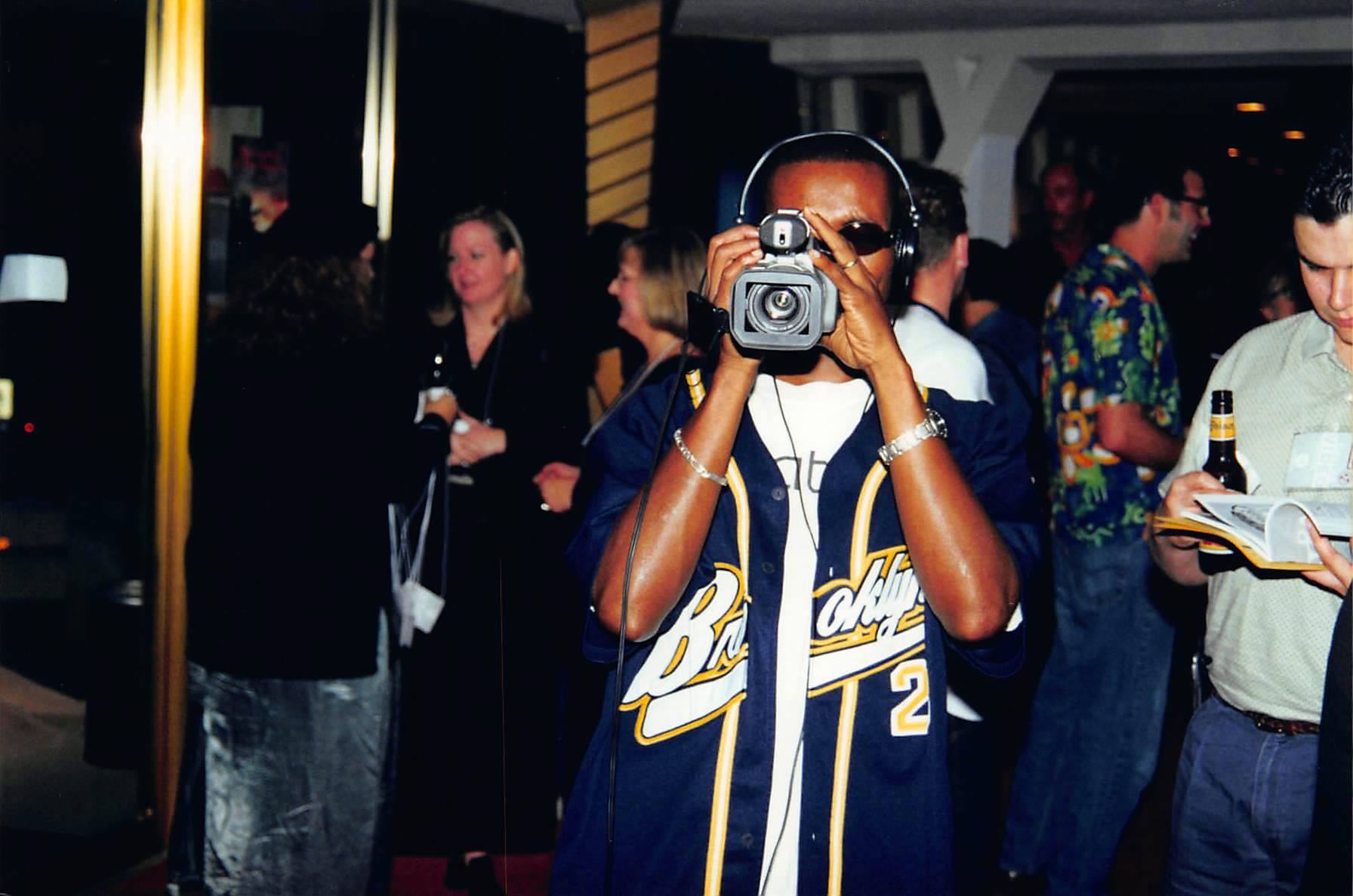
Courtesy of Bart Weiss/Dallas VideoFest

Audio By Carbonatix
Festivals are the lifeblood of a city’s culture, a celebration of its quirks, creativity and community. In Dallas-Fort Worth, festivals have long been a way to bring people together, to revel in art, music and shared experiences. But as time marches on, some of these beloved events fade out, leaving behind a legacy of cherished memories unique to North Texas.
James Faust, Artistic Director of the Dallas International Film Festival, puts it best: “Festivals are about connection. They’re about exposing communities to something new, something they didn’t know they needed. They’re a celebration of who we are and who we can be.”
Here, we take a nostalgic look back at five festivals that left an indelible mark on Dallas-Fort Worth. While some may be gone, their spirit lingers, reminding us of the power of coming together.
Texas International Pop Festival (1969 & 2019)
Two weeks after Woodstock, the Texas International Pop Festival brought the counterculture movement to North Texas. Held in Lewisville, this three-day event featured a lineup that reads like a rock-and-roll hall of fame: Janis Joplin, Led Zeppelin, B.B. King and Santana, to name a few.
Angus G. Wynne III, the festival’s organizer and son of the founder of Six Flags Over Texas, drew inspiration from his time at Woodstock.
“I had friends who were doing this, who had done this in Atlanta,” he tells the Observer. “My motivation was twofold: to further the culture and to make some money.”
“A tidal wave of noise the likes of which I had never experienced.”
– Peter Weller
For Wynne, the most rewarding aspect was “Seeing the level of satisfaction amongst the people who showed up and paid their $3, which was a steal in anybody’s book.”
For Peter Weller, a University of North Texas student at the time who would go on to star in RoboCop, the festival was transformative. He described the event as “a godsend,” being just 20 miles from where he was attending college. Weller emphasized the cultural significance of rock music during the 1960s and ‘70s, calling it “the apex of all the arts.” He noted that music was ahead of other art forms like theater, books and poetry during that era, with new and riveting records being released monthly by artists like Dylan, The Beatles and Motown legends.
The performances at the festival made a big impression on Weller.
“Janis was electric, just phenomenal,” he said. “She put me into a stupor.”
But it was Led Zeppelin’s set that truly overwhelmed him.
“Zeppelin was more noise, and beautiful noise, than I’d ever heard before or since. It felt like a typhoon,” he recalls. “A tidal wave of noise the likes of which I had never experienced and never experienced afterwards. I had to lie down. I couldn’t watch it.”
The festival wasn’t just about the music, either. It was a moment of unity, a peaceful gathering that defied the chaos of the era.
“It was very well-ordered, extraordinarily well-ordered and really peaceful,” Weller noted. However, the event also occurred during a period of cultural tension. Weller reflected on the shift in public perception of the counterculture movement following the Manson murders earlier that month.
“People started to look at us like criminals… That’s where, suddenly, the counterculture goes into being a hippie is being a bad guy,” he said. Despite this, Weller identified with the social movement of the time, supporting causes like women’s rights, gay rights and anti-Vietnam War efforts.
The Texas International Pop Festival was a fleeting moment in time, but its echoes still reverberate. In fact, in 2019, the festival’s legacy was celebrated with a 50th anniversary event in Lewisville. The lineup included ZZ Top, Chicago and Grand Funk Railroad, the latter two having played the original festival. Now, the weekend festival where music transcended the stage and became a force that brought people together lives on in the people whose lives it changed.
Fry Street Fair (1980-2007, 2024-?)
For nearly three decades, the Fry Street Fair was the heartbeat of Denton’s music scene. It was a celebration of the city’s reputation for being the weird sibling of Dallas and Fort Worth, a place where the “kids on the other side of the tracks” could let loose and come together.
Photographer Alec Williams, who documented the fair in its early years, described it as “a very hang-loose atmosphere.” He added, “It was much more civilized than people would have thought. You could bring your kids there, and they’d be totally safe.”
The fair wasn’t just about music; it was about community.
“It was a rebellion,” Williams said. “Here I was with a couple of social science degrees, and I thought, hell yes, I will document history. And the camera is one way to do it.”

Alec Williams
In 2024, the Fry Street Fair was revived under new management, led by Andy Saunders, owner of Dirty Dick’s Bar. While the new iteration shares the name of its predecessor, Saunders has worked to create something entirely new, focused on positivity and giving back.
“We are completely run by an actual Denton business for Denton — a nonprofit,” Saunders explained.
The new Fry Street Fair has already made a significant impact. In its second year, the event donated 1,300 pounds of goods, including food, clothing and toys, to local charities like Our Daily Bread and Toys for Tots, along with $1,000 to the latter.
“My goal every year is to triple our donations,” Saunders said. “It’s about doing more for the community and keeping music alive in Denton.”
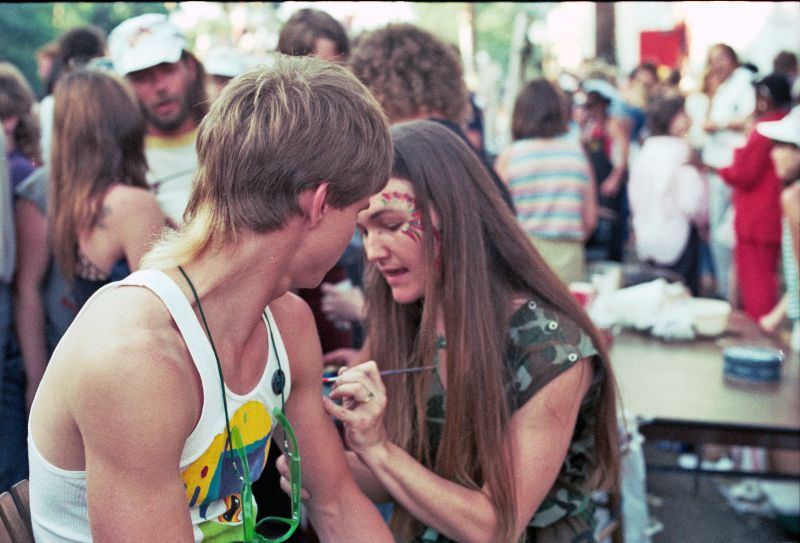
Alec Williams
Saunders acknowledges the challenges of reviving a beloved event, especially in a town that values its history and traditions.
“I wanted to bring music back to Denton because we truly don’t have that many events anymore like we used to,” he said.
The Fry Street Fair is a testament to Denton’s enduring love for music and its ability to reinvent itself. Whether you were there in the ’80s or plan to attend its next chapter, the fair remains a symbol of the city’s vibrant, rebellious spirit—one that continues to evolve while staying true to its roots.
Dallas VideoFest (1987-2021)
For 34 years, Dallas VideoFest was a haven for experimental filmmakers, video artists and storytellers who dared to push boundaries. Founded by Bart Weiss, the festival was born out of a desire to showcase video as a creative medium.
“I was a club VJ in the ’80s, showing video art before people started dancing,” Weiss recalled. “I realized that if people had a drink in their hand, they’d watch things they wouldn’t otherwise.”
From its humble beginnings at the Dallas Museum of Art, VideoFest grew into a platform for innovation.
“We were always looking to move the culture forward.”
– Videofest founder Bart Weiss
“We were the first in the region to show high-definition television,” Weiss said. “We created interactive rooms before video games were a thing. It was all about exploring what was new and inspiring people to create.”
Dallas filmmaker David Lowery (The Green Knight, upcoming A24 film Mother Mary) fondly remembers the festival’s unique offerings.
“I always loved spending those long VideoFest weekends at the DMA and the Kalita Humphreys Theater, watching exciting new work that often wouldn’t be seen anywhere else,” he said. “I remember wandering into one such strange offering in the early aughts and passing [Weiss] on the way in; I’ll never forget the conviction with which he said [the screening] ‘deserved to be seen.’”
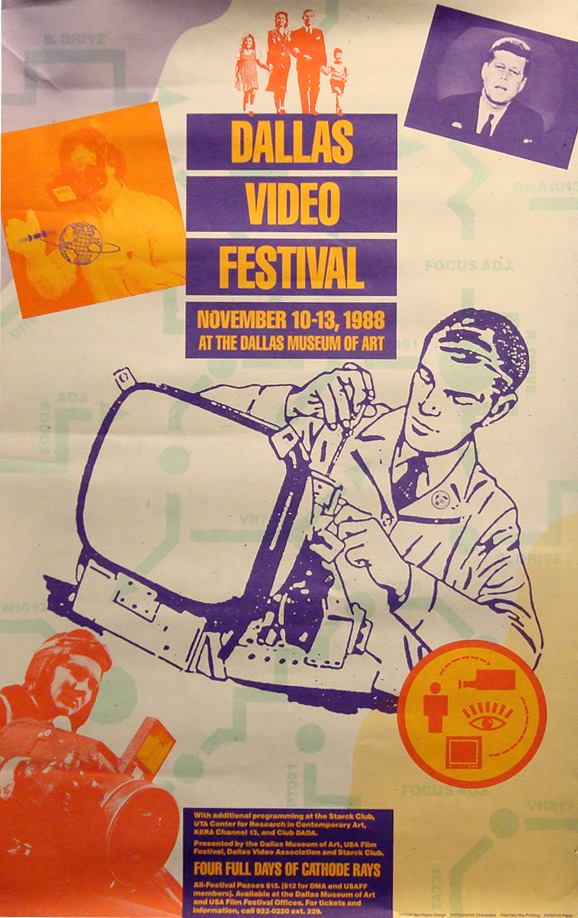
Courtesy of Bart Weiss/Dallas VideoFest
Faust, reflecting on the festival’s impact, added, “It was integral to shaping a side of Dallas that people didn’t think about. It showcased the world to Dallas while letting the world know there’s this great artistic community here—just as avant-garde as anything in New York or France.”
Dallas VideoFest wasn’t just a festival; it was a movement. It challenged perceptions, celebrated innovation and left a legacy of creativity that continues to inspire local filmmakers and audiences alike.
Deep Ellum Arts Festival (1994-2022)
For nearly three decades, the Deep Ellum Arts Festival was a celebration of creativity, community and the unique spirit of one of Dallas’ most iconic neighborhoods. Founded by Stephen Millard, the festival was a platform for emerging artists and musicians.
“We had a lot of creative freedom to push the boundaries of art and music,” Millard said. “It was all about providing that unexpected surprise and introducing people to new forms of art.”
The festival featured over 200 visual artists and 100 original bands each year, with a strict no-cover-band policy.
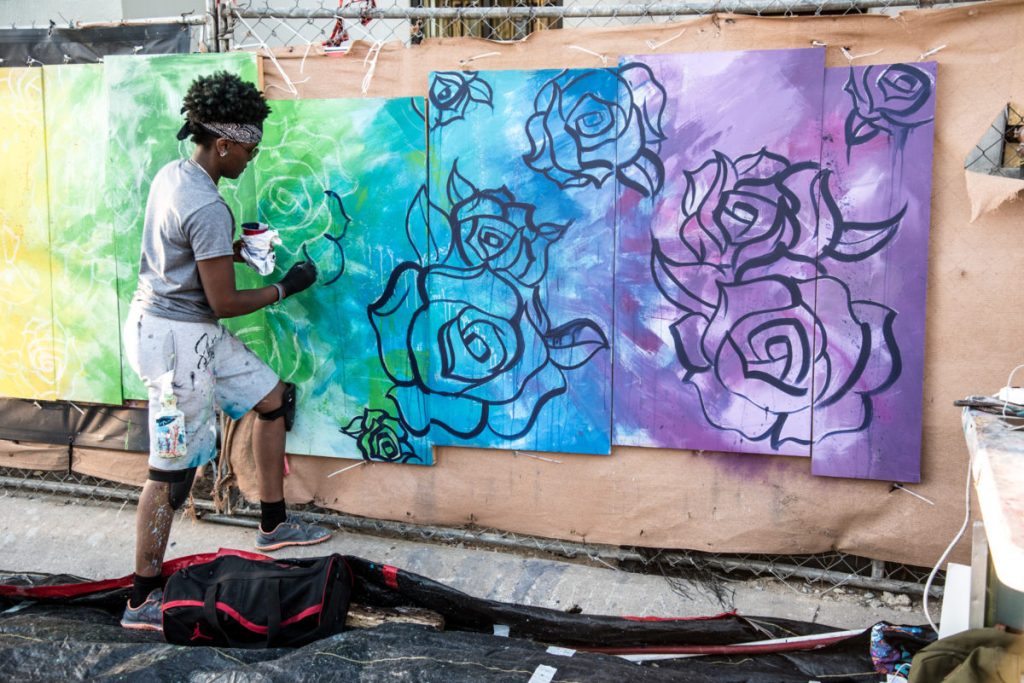
Bret Redman
“People came to hear something new,” Millard said. “We made sure there was always something happening on every block, every hour.”
The Deep Ellum Arts Festival was certainly an experience. It captured the raw, unfiltered energy of the neighborhood and turned it into a celebration of art and music. For those who walked its streets, it was a reminder of the magic that happens when creativity and community collide.
Its space — both figuratively and literally — isn’t dormant, though. The Deep Ellum Block Party, which shares a similar intent, returns for its second year later this month.
Texas Veggie Fair (2010-2020)
In 2010, Jamey Scott founded the Texas Veggie Fair to provide a platform for the growing vegan and vegetarian community in Dallas. What began as a small gathering in a Deep Ellum warehouse quickly grew into a beloved event that drew thousands over the next decade.
“I wanted a place where I could eat vegan fair-style foods,” Scott said. “But I also wanted to create a space where people could learn about veganism — why it’s good for your health, the animals and the environment.”
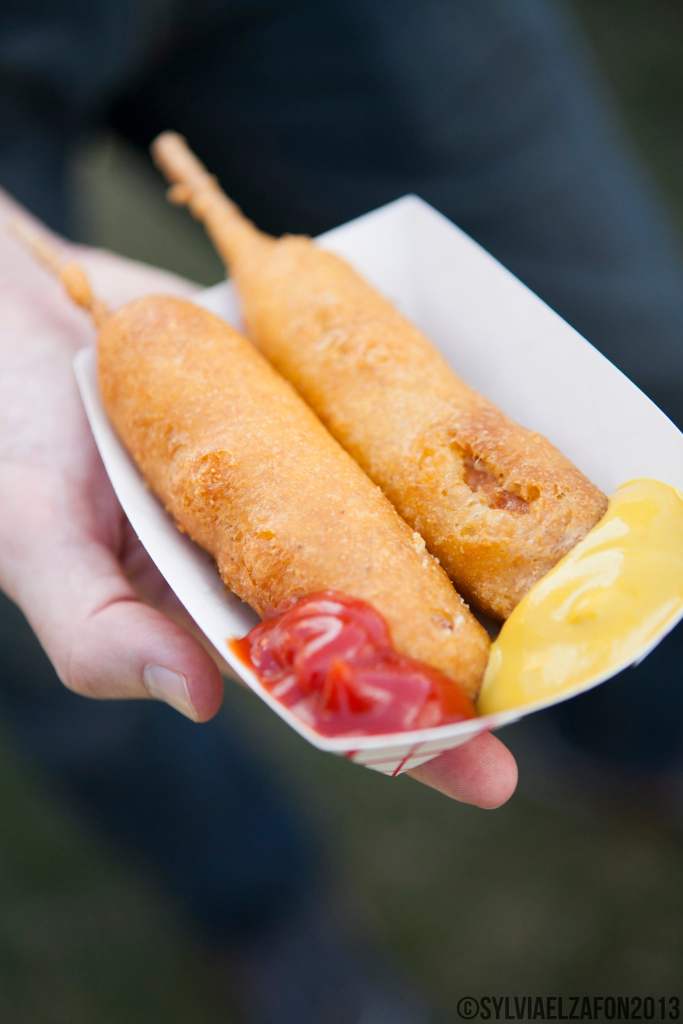
Sylvia Elzafon
While the event was meant to focus on vegans, Scott quickly realized people of all dietary preferences had an appetite for the festival’s various entertainment offerings.
“We had live entertainment, kids’ games and activities that anyone could enjoy,” Scott said. “And it was always free, which was important to me. I wanted skeptics to feel welcome.”
The Texas Veggie Fair was a celebration of compassion, sustainability and community. Its legacy lives on in the plant-based options now found across Dallas, a city that embraced the fair’s message of inclusivity and delicious possibilities.